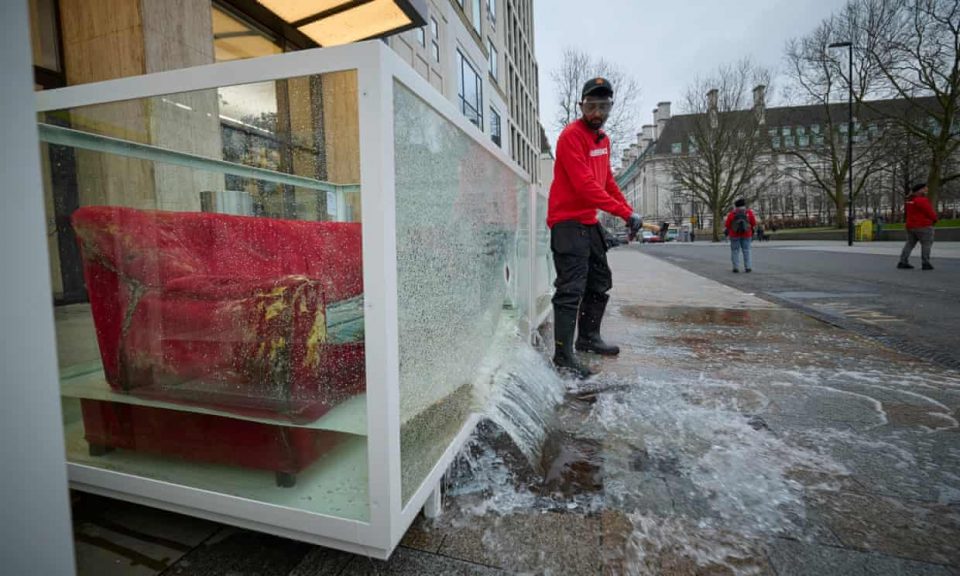For two days and nights, Ronalyn Carbonel and her four children clung to the rooftop of their residence as a violent storm unleashed its fury around them. Situated about 10 miles east of Manila in the village of Rizal, they were powerless as wind battered their community and water surged through the lower levels of their home. All they could do was wait, hoping for a rescue alongside hundreds of neighbors.
“We were left without shelter or food … we had no choice but to rely on the government for two days,” Carbonel recounted. “It was incredibly difficult—no electricity, no light, we simply had to endure until sunrise. The children were terrified; we had never faced anything like this before.”
Carbonel was speaking to The Guardian while activists from Greenpeace and youth leaders from the Philippines protested outside Shell’s headquarters in London, calling for “accountability from major polluters and justice for all the loss and damage they have inflicted.”
Typhoons have always affected the Philippines, yet the climate crisis has intensified their severity, resulting in more powerful winds and devastating floods.
Last year, an unprecedented typhoon season saw six storms strike the nation within just a month. Super-typhoon Man-yi unleashed winds up to 120 mph, displacing over 650,000 residents. In total, this storm season—characterized as “supercharged” by climate change according to experts—impacted more than 13 million individuals, destroyed countless livelihoods, and incurred an estimated $500 million in damages.
As the president of her local homeowners association, Carbonel noted that storms have drastically worsened since her youth. “I never encountered this type of intense typhoon when I was a child,” she stated. “Although we are frightened, we are already taking precautions, gathering food, medicine, and water.”
A sofa belonging to Carbonel was displayed in one of several large glass boxes filled with water outside Shell’s offices on Wednesday, along with a television, shoes, and a teddy bear—all items lost to the recent storm season.
As Shell employees arrived at work, recordings of children laughing and the sounds of cooking or watching television from the Philippines filled the air, only to be interrupted by the blaring of flood warning sirens.
Activists then smashed the glass containers, allowing the water to spill out in front of the building.
Maja Darlington, a climate campaigner with Greenpeace UK, declared: “The world is on the brink, and it is fossil fuel companies like Shell—who rake in tens of billions annually by exploiting fossil fuels causing this climate chaos—who are responsible. It’s time they face the music and settle their climate debts.”
Bon Gibalay, a youth leader from Bohol in the Philippines who participated in the demonstration, remarked: “For far too long, communities like mine have endured successive climate crises, while companies like Shell keep profiting from exacerbating the climate emergency. By presenting these cherished items, damaged and destroyed by typhoons intensified by climate change, at the doorstep of Shell, we demand accountability and justice for all the harm they’ve caused.”
During the recent storms, Carbonel’s home managed to avoid severe damage, and she spent the night alerting her neighbors with a loudspeaker. Ten families whose homes were significantly affected found refuge in hers until the storm passed.
With the next storm season approaching, she expresses her hope that the world will take notice and that oil corporations will acknowledge their responsibilities.
“How can we compel these influential and wealthy individuals to pay? They hold positions in government and large companies. What can someone like me do? I just tell my children not to worry and to pray to God that the next typhoon will spare us. I tell them to have faith.”


